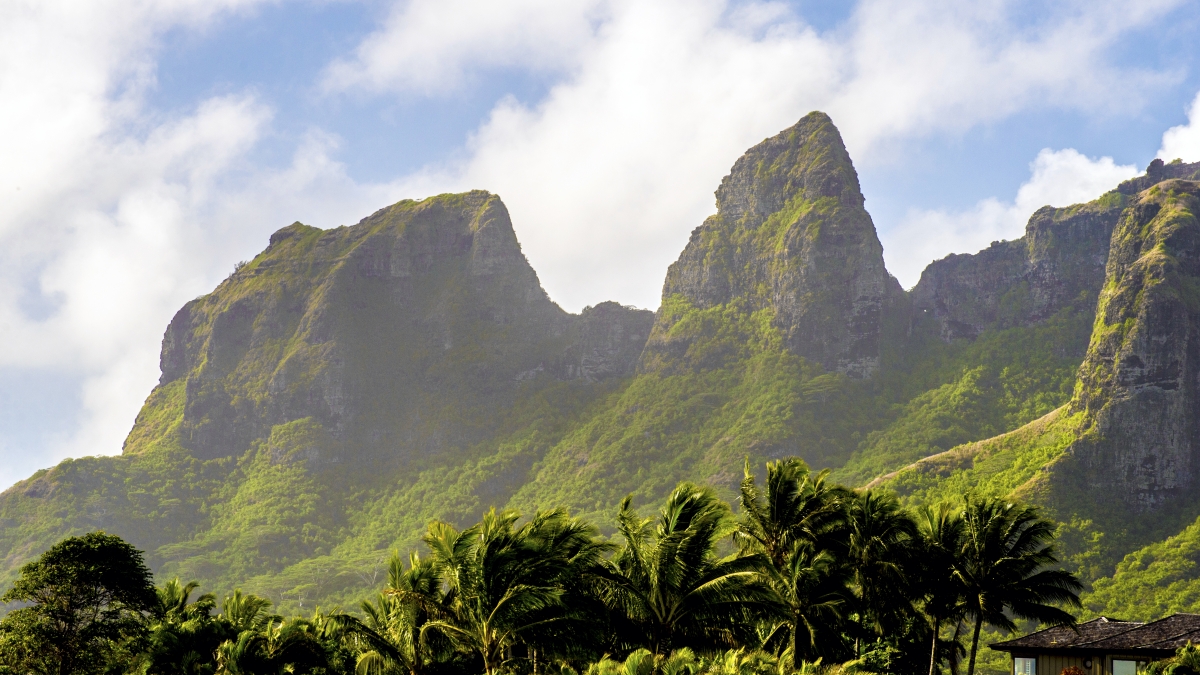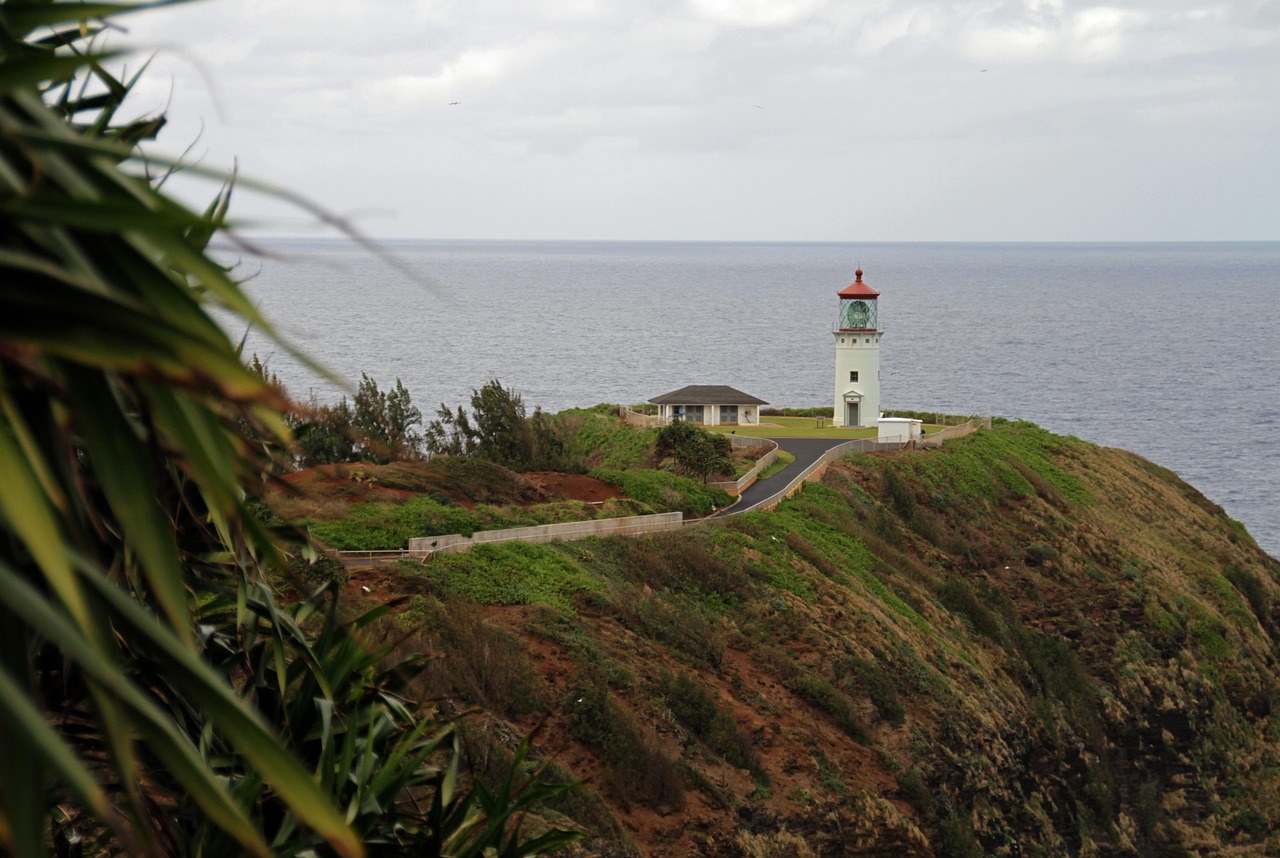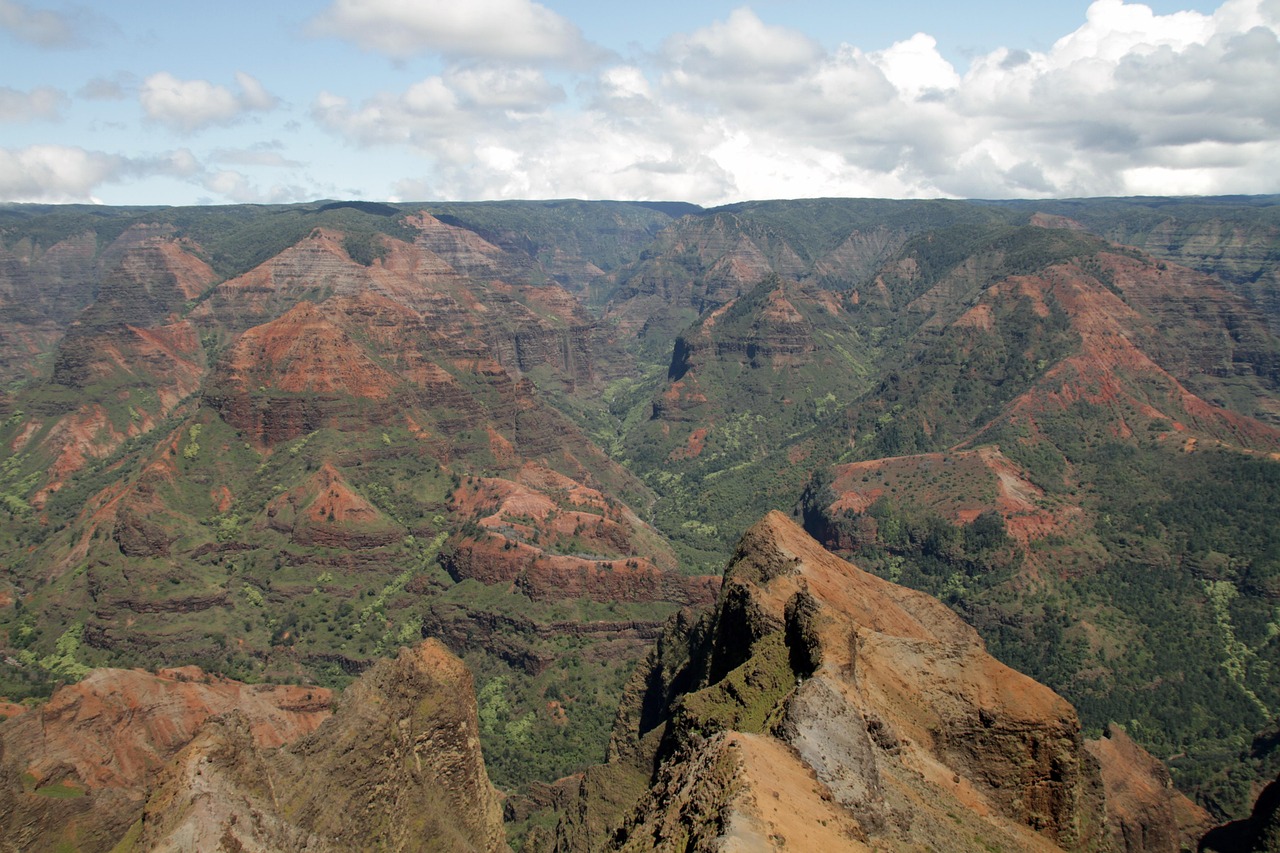Current Weather
Average Seasonal Temperatures
Introduction
Sleeping Giant (Nounou) on the island of Kauaʻi offers a blend of raw natural beauty and everyday aloha that rewards curious travelers. Between emerald ridgelines, crescent beaches, and small-town charm, there’s always something to discover. Choosing the right season helps you match ocean conditions, crowds, and events to the trip you want.
Why Visit Sleeping Giant (Nounou)
Sleeping Giant (Nounou) anchors the east coast with access to beaches, trailheads, scenic lookouts, and local eateries. The surrounding landscapes shift with the seasons—winter brings dramatic surf and waterfalls, while summer turns coves calm and crystal-clear. You’ll find independent shops, plate-lunch counters, and family-run activity outfitters that make planning easy without losing that slow-island feel.
Staying near Sleeping Giant (Nounou) keeps you close to sunrise strolls, golden-hour photography, and last-minute dips after dinner. Whether you’re traveling with kids, chasing surf, or celebrating a honeymoon, the rhythm of this place invites you to slow down and savor it.
Best Time to Visit Overview
The best time to visit Sleeping Giant (Nounou) is April–October for warm, breezy days perfect for outdoor exploration. Temperatures usually sit in the 70s °F year-round, with winter showers greening the valleys and summer trades keeping afternoons comfortable. When planning ocean activities, always check conditions day-of; Kauaʻi’s microclimates can vary between neighboring beaches.
Month-by-Month Weather & Travel Notes
January: Sleeping Giant (Nounou) in january brings cooler trade winds, passing showers on windward slopes, and powerful north swells that draw experienced surfers to the North Shore. If you’re planning coastal time on the east coast, start early, check daily conditions, and always heed lifeguard guidance.
February: Sleeping Giant (Nounou) in february brings similar to January with lush valleys and frequent rainbows; ocean conditions can be rough on north-facing beaches while south and west enjoy clearer windows. If you’re planning coastal time on the east coast, start early, check daily conditions, and always heed lifeguard guidance.
March: Sleeping Giant (Nounou) in march brings late-winter showers begin to ease; daylight lengthens and trails dry out between showers, rewarding hikers with waterfall views. If you’re planning coastal time on the east coast, start early, check daily conditions, and always heed lifeguard guidance.
April: Sleeping Giant (Nounou) in april brings a transition month into drier conditions; shoulder-season crowds make it easy to score dinner reservations and quiet stretches of sand. If you’re planning coastal time on the east coast, start early, check daily conditions, and always heed lifeguard guidance.
May: Sleeping Giant (Nounou) in may brings the start of reliably dry weather; ocean generally calms and visibility improves for snorkeling and boat tours. If you’re planning coastal time on the east coast, start early, check daily conditions, and always heed lifeguard guidance.
June: Sleeping Giant (Nounou) in june brings long, sunny days with gentle trade winds; morning excursions are glassy and afternoons are perfect for relaxed beach time. If you’re planning coastal time on the east coast, start early, check daily conditions, and always heed lifeguard guidance.
July: Sleeping Giant (Nounou) in july brings peak summer energy with family travel; lifeguarded beaches shine and evening sunsets linger over the Pacific. If you’re planning coastal time on the east coast, start early, check daily conditions, and always heed lifeguard guidance.
August: Sleeping Giant (Nounou) in august brings similar to July with warm water and mellow surf; occasional passing showers refresh trails without lingering. If you’re planning coastal time on the east coast, start early, check daily conditions, and always heed lifeguard guidance.
September: Sleeping Giant (Nounou) in september brings arguably the sweet spot—summer weather lingers while crowds thin, creating a relaxed rhythm for exploration. If you’re planning coastal time on the east coast, start early, check daily conditions, and always heed lifeguard guidance.
October: Sleeping Giant (Nounou) in october brings shoulder season returns; still many clear days, though the first early-wet-season showers may pop up. If you’re planning coastal time on the east coast, start early, check daily conditions, and always heed lifeguard guidance.
November: Sleeping Giant (Nounou) in november brings rain increases and north swells awaken; great for surf spectating, photography, and cultural experiences. If you’re planning coastal time on the east coast, start early, check daily conditions, and always heed lifeguard guidance.
December: Sleeping Giant (Nounou) in december brings festive season with cooler nights; dramatic skies, waterfalls in full voice, and prime conditions for whale watching offshore. If you’re planning coastal time on the east coast, start early, check daily conditions, and always heed lifeguard guidance.
Top Activities by Season
Summer (May–September): Expect calmer seas, brighter skies, and long daylight hours. Top picks near Sleeping Giant (Nounou) include cycling, kayaking, markets, beachcombing, lighthouse viewing. Summer mornings are ideal for ocean activities; reserve tours in advance during peak weeks.
Winter (November–March): Larger swells and more frequent showers shape the landscape with waterfalls and rainbows. This is a stellar time for surf watching, cultural events, food trucks, galleries, and scenic canyon overlooks on clear afternoons.
Travel Tips & Local Insights
- Arrive early for popular beaches and lookouts; parking is limited.
- Use reef-safe mineral sunscreen to protect coral ecosystems.
- Check the Hawaii Beach Safety (county) reports for daily ocean conditions.
- Respect closures and permits, especially for sensitive parks and trailheads.
- Pack light rain layers; trade showers often pass quickly but can be intense.
- Support local businesses and farmers markets—your dollars keep community culture thriving.
Conclusion
No matter when you visit Sleeping Giant (Nounou), you’ll find a version of Kauaʻi that feels personal and unhurried. By pairing the season to your interests—calm-water snorkeling in summer, surf and waterfalls in winter—you’ll get the most from each day. Build in time for spontaneous stops, respect the ocean, and embrace the island’s pace. That’s the secret to a memorable Sleeping Giant (Nounou) trip.
Contact us
Start planning your trip with us today! We can't wait to hear from you.
Explore Our Latest Insights
Discover travel tips and destination highlights.
Start Your Adventure Today
Unlock unforgettable experiences and let us craft your dream getaway tailored just for you.





